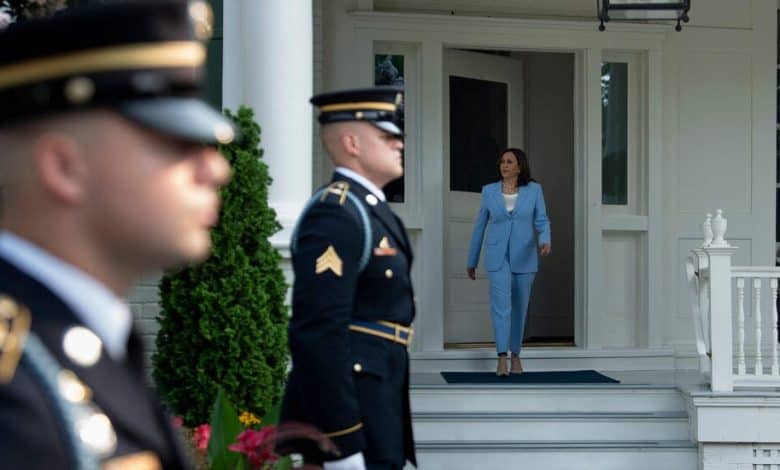Where Kamala Harris Lives, a Little Known History of Enslavement

Three years ago this month, Vice President Kamala Harris moved into her official residence in northwest Washington, a quiet 73-acre enclave where the U.S. Navy keeps an observatory as well as the nation’s master clock. Early in her stay she saw evidence of digging near her house, and after asking around, learned that an archaeological team had recently found part of a foundation of an Italianate villa, known as North View, that had been there more than a century and a half before.
Near the villa, the team had found something else: A brick foundation of a smokehouse used to cure meat. Ms. Harris did not have to be told who had used it. Well before moving to the new residence, the nation’s first Black vice president had been told by aides about the 34 individuals who once lived on the property against their will. A subsequent opinion essay for CQ Roll Call was the first mention of it in the news media.
The names of the enslaved people were recorded in a document of the era. Peter, Mary and Ellen Jenkins. Chapman, Sarah, Henry, Joseph, Louisa, Daniel and Eliza Toyer. Towley, Jane, Resin, Samuel, Judah and Andrew Yates. Kitty, William, Gilbert and Phillip Silas. Susan, Dennis, Ann Maria and William Carroll. Becky, Milly, Margaret and Mortimer Briscoe. Richard Williams. Mary Young. John Thomas. Mary Brown. John Chapman. William Cyrus.
They ranged in age from four months to 65 years, and in skill from winemaking to carpentry. Five of them would go off to the Civil War as Union soldiers. Another would flee at age 13, destination unknown. For those who remained on a property that was known at the time as Pretty Prospects, the abject conditions of their lives are hinted at in documents now preserved at the National Archives.
